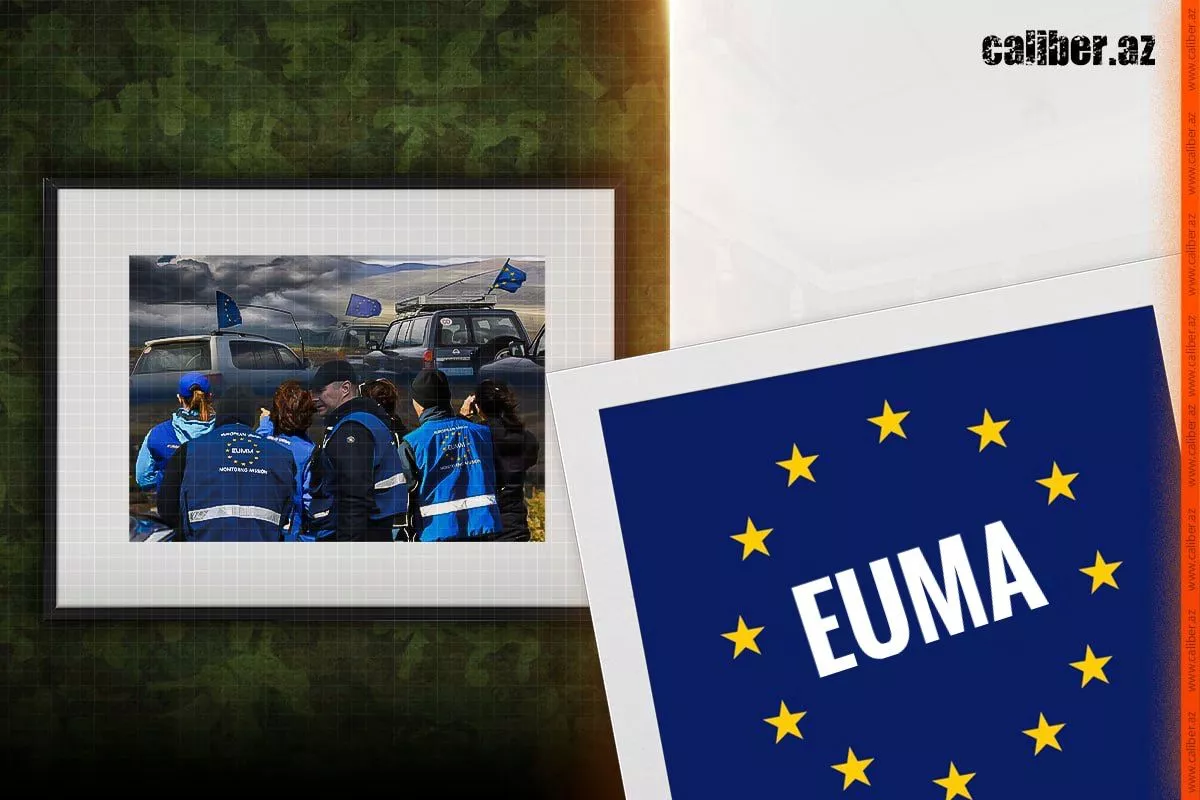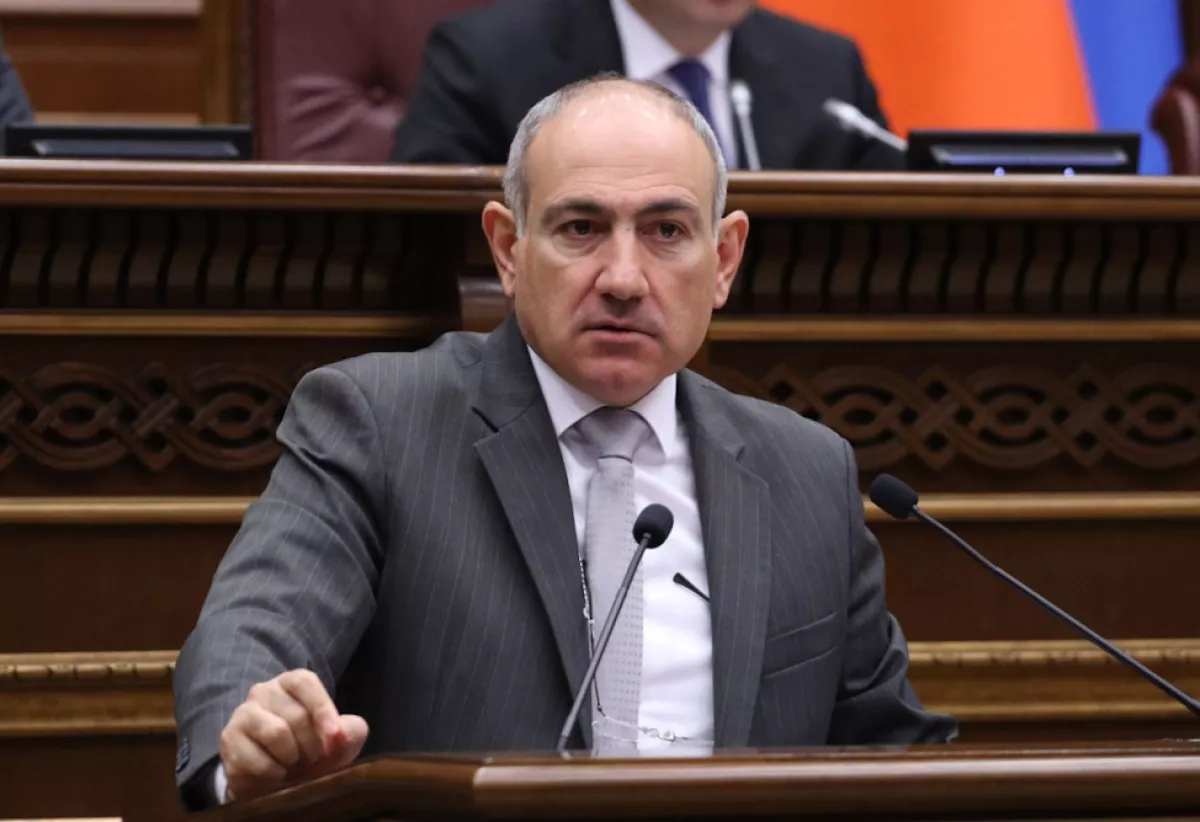European Parliament's new anti-Azerbaijan provocations From espionage to interference in internal affairs
The annual reports on the EU's overall foreign policy and security policy, as well as the EU's common security and defence policy, have been put to a vote in the European Parliament's Foreign Affairs Committee. As Armenian media joyfully report, both reports address Armenia-EU relations, noting and welcoming the current dynamics in their bilateral ties. The reports also express approval of the assistance provided to Armenia by the European Peace Facility and emphasize the role of the EU observer mission stationed in Armenia.
In this context, it is worth noting that the ambassadors of the European Union member states in Brussels have approved the decision regarding the EU's civilian mission in Armenia, which stipulates that European spies will remain in Armenia's border regions for an additional two years, until February 19, 2027. According to the draft decision, the composition and number of observers will remain unchanged: 165 foreign nationals and 44 Armenian members. This decision is expected to be approved by the foreign ministers of the EU member states in the near future. According to the official statement, the mission's observation zone extends along the entire Armenia-Azerbaijan border.
Essentially, this is yet another provocation. On October 7, 2022, the Council of Europe decided to send up to 40 EU experts along the Armenian side of the conditional border with Azerbaijan "with the objective of monitoring, analysing and reporting on the situation in the region." The mission was initially set to last for two months, and on December 19, 2022, it was reported that the group had concluded its activities. According to the then-head of European diplomacy, Josep Borrell, the mission "proved its effectiveness." However, in January 2023, it was announced that a new mission would be sent to Armenia. Its duration was extended to two years, and, as we can see, the total number of personnel involved exceeded 200. Now, it seems that the EU intends to turn its espionage mission into an indefinite one.

Moving on, Members of the European Parliament have welcomed Armenia's decision to freeze its membership in the Collective Security Treaty Organization (CSTO), while also reminding about the urgent need for “the immediate release of 23 Armenian hostages and prisoners of war being illegally held in Baku.”
This is how the EU refers to the former leaders of the Karabakh junta, who are accused of committing numerous heinous crimes against Azerbaijan and its people. We can see that the EU is attempting to exert pressure on Azerbaijan's judiciary system. This is the familiar amorality from those who have never bothered to impose sanctions on Armenia throughout the period it occupied 20% of Azerbaijan's territory, while ignoring UN Security Council resolutions.
But that's not all. The annual reports on the EU's common foreign policy and security policy, as well as its common security and defence policy, also highlight the importance of returning Armenians who illegally resided in Azerbaijan's temporarily occupied territories "to their homes," which in reality were the homes of Azerbaijanis who were forcibly displaced during the ethnic cleansings of the First Karabakh War. However, there is no mention in the report of the return of Azerbaijanis to Armenia, from where they were expelled as a result of multiple waves of repression, starting even from Soviet times.
Furthermore, the cynical nature of this plan was openly acknowledged by Armenia's first president, Levon Ter-Petrosyan. In a meeting with members of the terrorist organization "Yerkrapah" on July 23, 1993, he admitted, "If everything hadn't started in 1988, there would be no Karabakh today. We organized the work, created squads, and gained experience. Armenia and Artsakh have been completely cleansed of other nations."
Indeed, it is this expulsion of Azerbaijanis from Armenia that marked the beginning of the conflict between our peoples and nations. The EU's refusal to recognize this truth, and their attempt to exert pressure on the victim of occupation, speaks volumes about their immorality and lack of ethics. As for the claim in the reports that "the efforts of Armenia and Azerbaijan to normalize relations are welcomed, and that the normalization of relations and border delimitation should be carried out in accordance with the Almaty Declaration," it is clear that both previous and current Armenian leaderships have shown no intent to abide by international law or UN resolutions, disrespecting Azerbaijan's territorial integrity.
Pashinyan, as everyone in the EU should be aware, once declared in the then-occupied Khankendi that "Karabakh is Armenia and period." It should also be recalled that Armenia carried out rocket strikes on peaceful Azerbaijani cities during the 44-day war, resulting in the deaths and injuries of hundreds of elderly people, women, and children. The orders for these strikes came directly from Armenian Prime Minister Nikol Pashinyan, who now concocts many false myths to absolve himself of guilt. Yet, despite this, the EU did not impose sanctions on Armenia for this crime nor did it personally condemn Pashinyan.

Indeed, even after Armenia's defeat in the 44-day war and the signing of the Trilateral Statement by Pashinyan on November 10, 2020, Yerevan continued to provide political, financial, and military support to the Karabakh separatists. This is precisely why Azerbaijan conducted a one-day counterterrorism operation in the Karabakh region, which led to the full restoration of Azerbaijan's sovereignty and territorial integrity. Simply put, there is no basis for praising the Armenian leadership, as they were merely forced to act under the new realities, despite their previous stance, and had to swallow the bitter truth.
It is indeed telling that the European Parliament's reports call for the EU to terminate its energy cooperation memorandum with Azerbaijan and urge EU member states to cease providing technical and financial support to Azerbaijan. However, the claim of "financial support" from the EU to Azerbaijan is somewhat ironic. Azerbaijan has never been dependent on European financial aid. On the contrary, Azerbaijan has carried out many significant projects despite opposition from the EU. A prime example is the Baku-Tbilisi-Kars railway project, which was realized despite attempts by the US and the EU to reroute it through Armenia and their reluctance to finance the project. Azerbaijan managed to find the necessary funds independently and successfully completed the project through its own efforts.
Indeed, the situation is quite delicate for European Commission President Ursula von der Leyen. It was she who rushed to Baku in July 2022 and signed the energy cooperation memorandum with President Ilham Aliyev. At that time, she spoke at length about Azerbaijan's unique role in ensuring Europe's energy security. Now, as we can see, the European Parliament is pushing her to retract those statements. It's an expected move, but it will be interesting to see how Europe handles it. And the issue isn't just about Azerbaijani gas. The broader implications for the EU’s geopolitical positioning and energy strategy are significant, especially considering the importance of diversifying energy sources in the wake of the Ukraine crisis and European dependency on Russian energy.
I would like to remind you of a fragment from an interview recently given by the President of Azerbaijan, Ilham Aliyev, to local TV channels. In it, he responds to the current provocations from the EU. “So how will they implement their policy of rapprochement with Central Asian countries? How? Will they communicate through Russia? I doubt it. Through Iran perhaps? I also doubt it. Will they dig a tunnel under Azerbaijan? Probably not either. Therefore, they should just be sober about it and appreciate Azerbaijan as a reliable partner, which has never done anything bad to Europe or any European country. It only responded and will continue to respond. Good for good and evil for evil, so to speak,” Aliyev said.
Nothing more to add to that.








